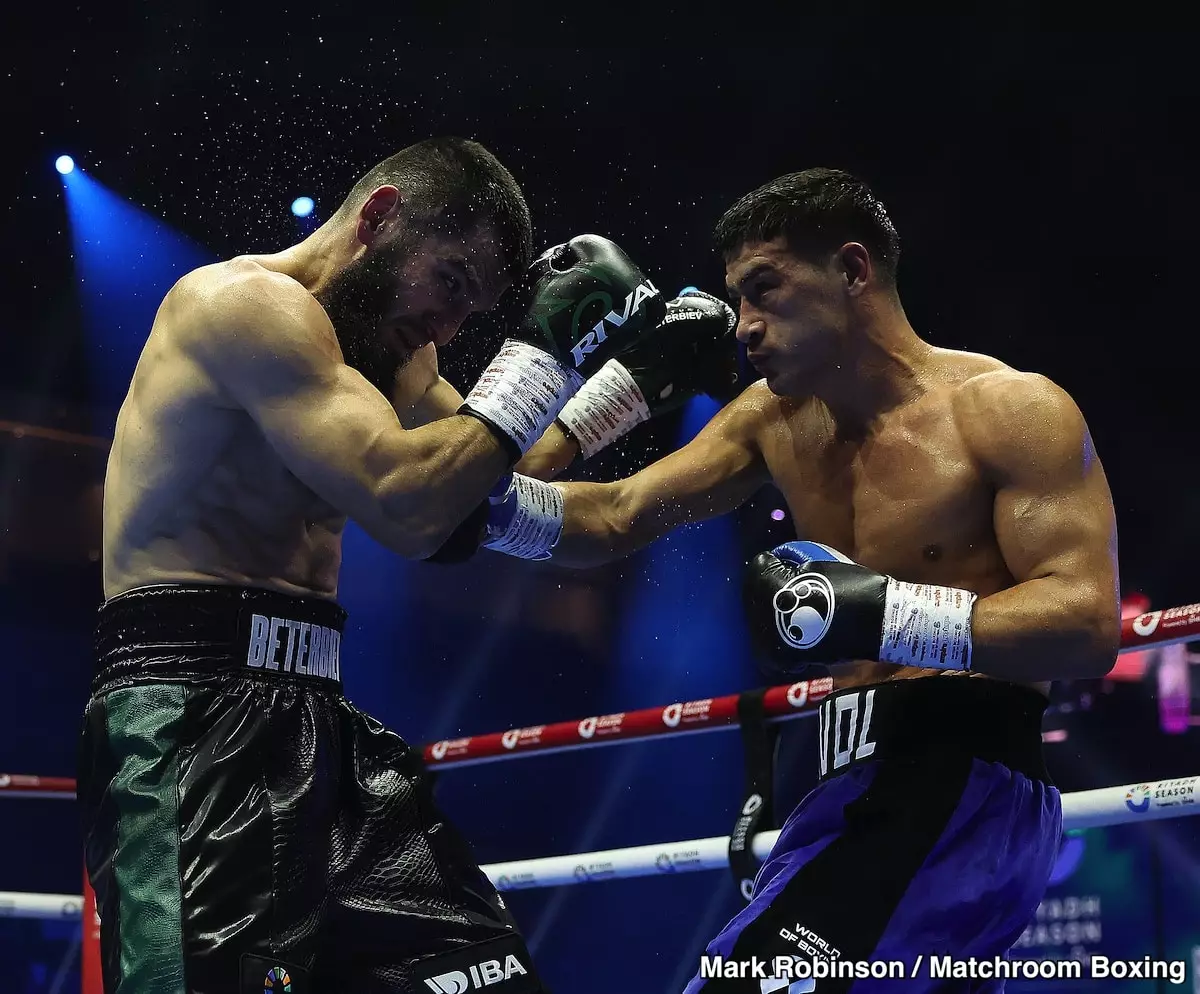By BoxingHit Staff-
The recent battle between Dmitry Bivol and Artur Beterbiev has left fans and analysts alike buzzing with opinions and speculations. With the controversy surrounding the judges’ decision that leaned favorably towards Beterbiev, the spotlight now shifts toward potential rematches and the strategic lessons that can be gleaned from their contentious bout. Trainer Robert Garcia, a seasoned figure in the boxing world, weighs in with his insights, positing that Bivol’s fate in a rematch hinges on his performance in the championship rounds. This critical analysis dissects Garcia’s perspective, evaluating Bivol’s performance and the potential for a rematch.
In Garcia’s estimation, Bivol (23-1, 12 KOs) exhibited a commendable effort throughout most of the fight. However, his tactics in the 10th through 12th rounds came under scrutiny. Garcia notes that Bivol focused excessively on defense during these pivotal moments, which limited his offensive output. While defense is crucial in boxing, the championship rounds often separate the champions from mere contenders. Garcia’s suggestion to increase offensive activity rather than solely protect is critical. Bivol’s strategy could be seen as a double-edged sword; while it might have preserved his stamina, it ultimately contributed to a lack of decisive scoring that may have swayed the judges.
Furthermore, Garcia posits that Bivol might have fallen into a psychological trap, perhaps believing he had secured a win and thus opting for a conservative strategy. This tendency to play it safe can often backfire in high-stakes matches. The psychological warfare of boxing, where every round can holistically change the momentum, demands a fighter to stay aggressive until the final bell tolls. Bivol’s illusion of security could have easily diverted him from a more proactive approach that might have earned him favorable judgments.
The swirling speculation around a rematch hinges not only on Bivol’s tactical decisions but also on the preferences of match officials and promoters. Garcia claims that if a rematch were to take place, especially in Las Vegas, Bivol could potentially triumph. His argument rests on the premise that the judges and boxing community may lean towards Bivol this time around due to the outcry over the last match’s decision. This notion raises questions about the impact of public perception on officiating in boxing.
Yet, the most significant concern remains whether Bivol is truly equipped to adapt his style for a potential second encounter with Beterbiev (21-0, 20 KOs). While Garcia’s assertion that Bivol should be more aggressive holds merit, it also risks leaving him vulnerable. Beterbiev thrives on fighters exhibiting tenacity, a fact that Bivol learned painfully in their first encounter. Would pushing for an aggressive style genuinely enhance Bivol’s chances, or would it serve as a strategic misstep leading to potential knockouts?
It remains imperative that Bivol considers both his strengths and weaknesses in evaluating his fight strategy. Adapting an approach that balances offense with measured defense might be the clincher he needs in a rematch. Garcia highlights the specific moments in which Bivol successfully pressured Beterbiev, accentuating the importance of exploiting those opportunities more consistently. However, a marked consideration of Beterbiev’s counterattacking ability during those aggressive stretches cannot be overlooked.
In terms of physical conditioning, there lies a deeper layer to this tactical equation. Bivol’s stamina management played a crucial role in his decision-making during the later rounds of their first fight. Was he overly conservative due to physical exertion, or could strategic hesitations have stemmed from respect for Beterbiev’s power? Addressing these elements would require a comprehensive analysis of Bivol’s training regimen and psychological readiness—not only physically prepared but also mentally primed for a relentless boxing contest.
The potential rematch between Dmitry Bivol and Artur Beterbiev promises to be a riveting spectacle steeped in tactical complexities and psychological undercurrents. While Robert Garcia’s insights afford valuable perspectives on Bivol’s necessary adjustments, the ultimate solution lies within Bivol himself—his mental and physical preparedness will dictate his future success. The boxing world eagerly awaits whether Bivol can transform the lessons learned into a triumphant second chapter in his pursuit of championship glory. The convergence of strategy, psychology, and sheer tenacity will ultimately determine who walks away with the crown in their next encounter.


Leave a Reply